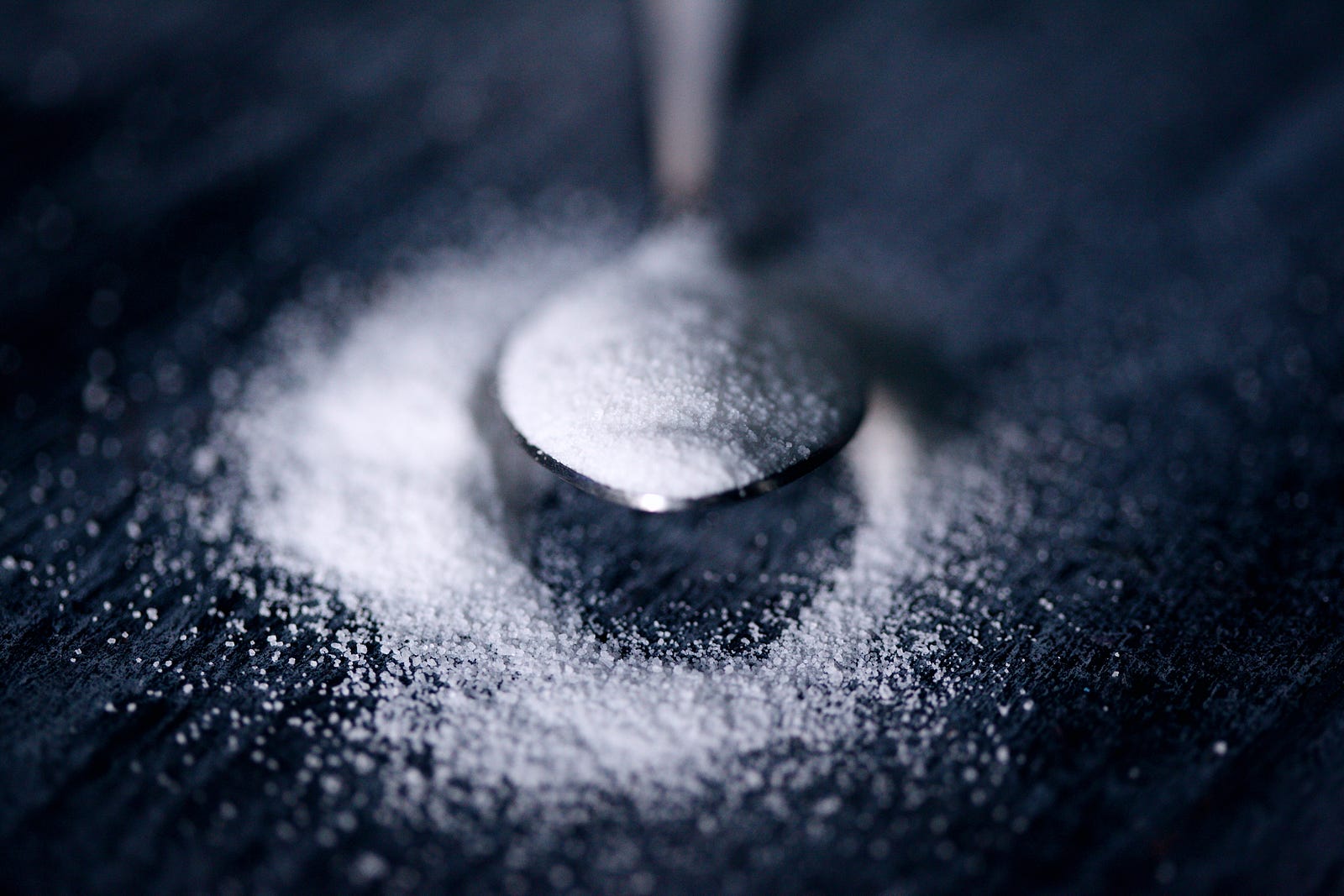SLEEP IS A FUNDAMENTAL BIOLOGICAL PROCESS that maintains our overall health and well-being. This essay delves into a study’s findings that reveal the detrimental effects of diets high in fats and sugar on deep sleep quality. We’ll explore how diets high in fat and sugar can wreck your deep sleep.
Consuming a more unhealthy diet rich in sugar and saturated fat (a so-called Western diet) can contribute to developing and progressing metabolic disease.
Fortunately, dietary interventions can improve glucose metabolism. Moreover, improving nutrition can translate to a reduced risk of cardiovascular events. Today, I want to focus on a slightly different topic: how different diets directly impact various neurobiological properties of sleep.
Understanding the diet: sleep connection is essential to promoting healthier dietary habits and optimizing sleep for a better quality of life.
I have recently been training for a 2024 bodybuilding competition (I have the advantage of recently turning 60, putting me in the older adult group).
Sleep is vital to my health and success in discovering my physique limits. I recently stumbled across a new Finnish study that reminds me how my diet can impact my sleep.
“Tell me what you eat, and I will tell you who you are.” –Jean Anthelme Brillat-Savarin.
The Diet and Sleep Connection
As research continues to unravel the intricate relationship between diet and sleep, evidence suggests that our food choices can significantly influence the quantity and quality of our sleep.
Diets high in fats and sugars have garnered particular interest due to their association with various health issues, and now studies are shedding light on their impact on sleep.
The mechanisms through which high-fat and high-sugar diets impact deep sleep quality are still being investigated. However, several hypotheses have been put forth.

One possibility is that these diets can cause metabolic imbalances and inflammation, disrupting the body’s natural sleep-wake cycle. Additionally, consuming these foods has been linked to increased arousal levels, making it more difficult to transition into and maintain deep sleep.
Sleep and Diet: A New Study
A new study from Uppsala University (Finland) examines the impact of a high-fat/high-sugar diet. The researchers desired to understand how a junk food diet impacts sleep in healthy adults.
They randomly assigned 15 healthy men one of two diets, including 1) a high-fat/high-sugar diet or 2) a low-fat/low-sugar one. Subjects switched diets after one week.
Following this diet intervention, they recorded subjects’ sleep patterns in a laboratory setting. The scientists used a sleep monitoring technique known as polysomnography. They examined variables such as sleep stages and patterns (including oscillatory patterns and slow waves).
Sleep and Diet: Study Results in Detail
After consuming the unhealthy diet, the quality of deep sleep in the participants worsened compared to when they followed the healthier diet. Here are their findings:
After consuming an unhealthy diet, sleep quality declined in subjects compared to when they followed a healthier diet.
While the sleep duration and overall structure did not vary between the two diets, the unhealthy diet appeared to be associated with reduced deep sleep quality and changes in some basic sleep patterns.
Those regularly consuming excessive dietary fat and sugar experienced disruptions in their brain’s slow-wave sleep patterns.

The junk food-induced disturbances included:
- A decrease in the duration of deep sleep.
- A higher number of awakenings throughout the night.
- A compromised ability to reach and sustain this vital stage of restorative sleep.
Deep sleep (slow-wave), also known as slow-wave sleep, is a critical stage of the sleep cycle characterized by synchronized brain activity, muscle relaxation, and physiological restoration.
In conclusion, the study confirms a connection between sets rich in fats and sugars and reduced sleep quality.
Sleep and Diet: Study Implications
The mechanisms through which high-fat and high-sugar diets impact deep sleep quality are still being investigated. However, several hypotheses have been put forth.
One possibility is that these diets can cause metabolic imbalances and inflammation, disrupting the body’s natural sleep-wake cycle.
Additionally, consuming these foods has been linked to increased arousal levels, making it more difficult to transition into and maintain deep sleep.
The implications of compromised deep sleep quality are far-reaching. Deep sleep is essential for various physiological processes, including tissue repair, hormone regulation, and cognitive consolidation.
Inadequate deep sleep can contribute to various health problems, including impaired immune function, mood disorders, memory deficits, and an increased risk of chronic conditions such as obesity, diabetes, and cardiovascular disease.
Promoting Healthy Dietary Habits for Optimal Sleep
Recognizing the impact of diets high in fats and sugars on deep sleep quality highlights the importance of adopting healthier dietary habits.
Individuals can optimize their sleep quality by prioritizing nutrient-dense foods like fruits, vegetables, whole grains, and lean proteins. Also, limiting the consumption of processed foods, sugary snacks, and greasy meals can help mitigate the negative effects on sleep.
Moreover, establishing consistent sleep routines, creating a conducive sleep environment, and engaging in regular physical activity are complementary strategies that can enhance sleep quality and promote overall well-being.
10 Tips for Improving Your Sleep
- Establish a Consistent Sleep Schedule: Try to go to bed and wake up simultaneously every day, even on weekends, to regulate your body’s internal clock.
- Create a Relaxing Bedtime Routine: Engage in calming activities before bed, such as reading, taking a warm bath, or practicing relaxation techniques like deep breathing or meditation.
- Design a Comfortable Sleep Environment: Ensure your bedroom is cool, dark, and quiet. Invest in comfortable mattresses, pillows, and bedding that suit your preferences.
- Limit Exposure to Electronics: Avoid using electronic devices, such as smartphones, tablets, or laptops, before bedtime, as the blue light emitted by these devices can disrupt your sleep patterns.
- Avoid Stimulants and Heavy Meals: Minimize consumption of caffeine, nicotine, and alcohol, especially close to bedtime. Also, avoid large, heavy meals late in the evening, as they can cause discomfort and indigestion.
- Incorporate Regular Physical Activity: Engage in moderate exercise regularly, preferably earlier in the day, as it promotes better sleep. Avoid vigorous exercise close to bedtime, as it can increase alertness.
- Create a Restful Sleep Environment: Use earplugs, eye masks, or white noise machines to block out disruptive noises or lights that may disturb your sleep.
- Limit Daytime Napping: If you have trouble sleeping at night, avoid daytime napping or limit it to short power naps earlier in the day.
- Manage Stress: Practice stress management techniques, such as mindfulness, journaling, or relaxing activities, to help calm your mind before bed.
- Evaluate Your Sleep Environment: Assess factors that may interfere with your sleep, such as uncomfortable bedding, an unsupportive pillow, or a noisy bedroom, and make necessary adjustments for a more restful sleep.
Remember, it may take time to develop healthy sleep habits, so be patient and persistent in implementing these tips. If sleep problems persist, consider seeking guidance from a healthcare professional specializing in sleep disorders.
Key points — Diet and Sleep
Question. Does diet affect sleep?
Findings. Yes, after consuming an unhealthy diet, sleep quality declined in study subjects compared to when they followed a healthier diet.
Meaning. The study reinforces that dietary choices extend beyond physical health and can impact sleep. Consuming a diet rich in fats and sugars may disrupt the critical stage of deep sleep, compromising your rejuvenation ability.
The diet-induced sleep changes modulate several behavioral and physiological outcomes (including mood, memory consolidation, attention, and glucose metabolism).
There are some big study limitations, including the following:
- A small sample size of only 15 healthy young men.
- The researchers did not include any women, older adults, or children. We cannot extrapolate the results to the general population.
- The study lasted a very short time (one week). We need validation studies.
One more thing:
Does A Nap Compensate for Bad Sleep?
The information I provided in this blog is for educational purposes only and does not substitute for professional medical advice. Please consult a medical professional or healthcare provider for medical advice, diagnoses, or treatment. I am not liable for risks or issues associated with using or acting upon the information in this blog.
Thank you for reading “Diet and Sleep.”



